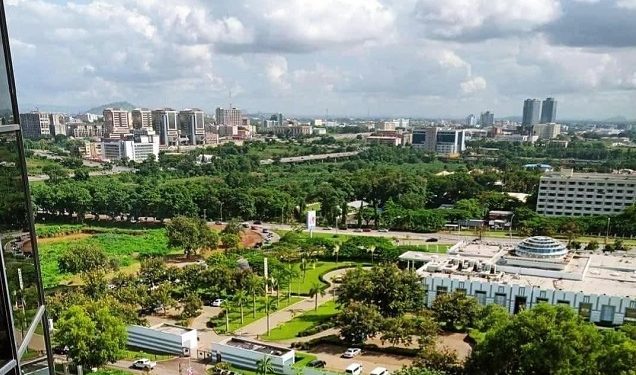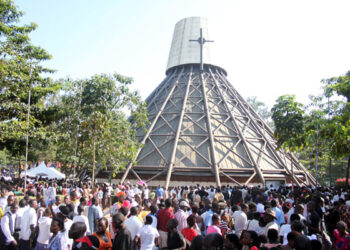By THE INDEPENDENT UG
ABUJA, NIGERIA | Xinhua | Inside Bukunmi Adeniran’s modest gift shop in Lugbe, a low-income suburb of Nigeria’s capital, Abuja, shelves were adorned with an array of chocolates, plush teddy bears, delicate bouquets, and other items. The shop beckoned eager shoppers during the Valentine’s Day celebration.
Despite the rising cost of living, Adeniran’s shop, decorated with heart-shaped balloons, as well as red and white ribbons, served as a mecca of sorts in this neighborhood for shoppers eager to find the perfect token of love for their cherished ones on Valentine’s Day, celebrated annually on Feb. 14 worldwide.
“I have been saving up for weeks to buy my girlfriend an expensive gift, but with prices going up everywhere, I had to rethink my plans and settle for something less. The goal is to make her happy, no matter how expensive or cheap the gift is,” said Ahmed Abubakar, a student at the University of Abuja, who had come to pick a gift for his girlfriend.
Noting that “sometimes the simplest gestures mean the most,” Abubakar said he would present his gift to his girlfriend, along with a heartfelt letter expressing his feelings, at a dinner later on Wednesday.
Nigerians are determined to make the most of Valentine’s Day, cherishing the opportunity to celebrate love and connection despite the current economic challenges. Netizens gleefully shared online pictures and videos of families gathering for picnics in local parks and beaches, and friends exchanging small tokens of affection.
Nigeria, Africa’s largest economy, entered the new year amid internal and external difficulties, with President Bola Tinubu vowing to tame stubborn inflation.
The country is battling its highest inflation in nearly three decades. The latest data released by the National Bureau of Statistics showed that the inflation rate in December last year was 28.92 percent, the highest since mid-1996.
Nigeria’s inflation rate reached double digits in 2016 and has remained stubbornly high since January 2021. It surged to 22.41 percent in May 2023, with food being the biggest driver, and then soared to 28.92 percent in December.
The effects go beyond the statistics, penetrating the daily lives of Nigerians who find themselves facing increasingly higher costs of living.
Amid rising prices and economic uncertainties, Nigerians are finding creative ways to express affection and celebrate relationships without breaking the bank. The spirit of celebration remains undimmed, with many families defying the high cost of living to honor the bonds of love and companionship.
“I may not be able to afford a lavish dinner or extravagant gifts, but that does not mean I cannot show my love and renew the hope of my wife,” said Kamsiyochukwu Nwodo, a young entrepreneur based in Lagos.
“My plan for Valentine’s Day is simple, yet meaningful. I am going to cook a special meal for my wife at home, set up some candles, and spend quality time together. It is about cherishing the moments we have,” said Nwodo.
For many, the key to celebrating Valentine’s Day on a budget lies in thoughtful gestures and heartfelt sentiments rather than some material extravagance.
Nigerians are redefining the meaning of romance in the face of economic challenges, and lovers can make do with simple gestures, “from handwritten love letters to homemade gifts,” said Nwodo.
According to Maryam Waziri, a single mother of two, the essence of Valentine’s Day lies in the connections forged and the memories created.
“We have learned to adapt and find joy in the simple things,” Waziri wrote on WhatsApp status Wednesday morning, vowing to give her two daughters a memorable Valentine’s Day experience.
“Yes, times may be tough, but that does not mean we cannot celebrate love in meaningful ways. Whether it is a heartfelt letter, a homemade meal, or a small token of affection, it is the thought and effort that count,” she added. ■







Discussion about this post